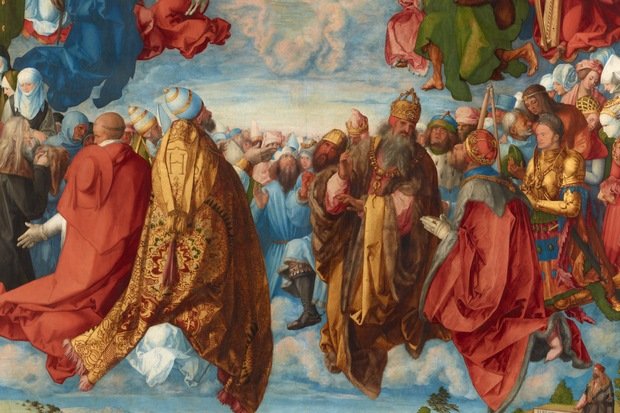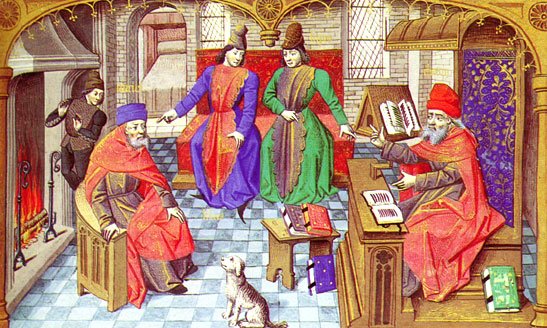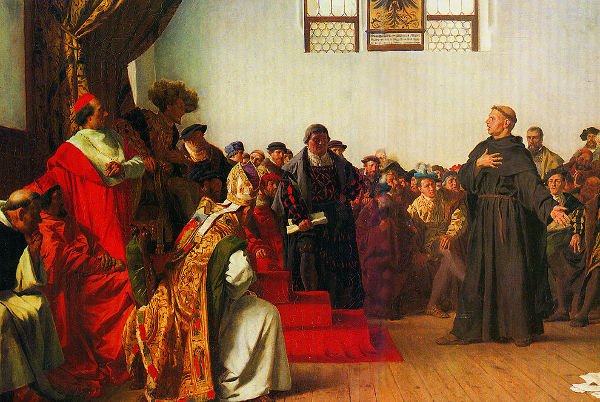European Spiritual Challenges and Its Authority
European Spiritual Challenges and Its Authority

Image Source
Amid this period of European history, the Catholic Church, which had turned out to be rich and powerful, went under investigation. For over a thousand years the Christian religion had bound European states together regardless of contrasts in language and traditions. Its all-overrunning power influenced everyone from king to commoner. One of the principle Christian tenets is that wealth ought to be utilized to alleviate enduring and neediness and that the monetary assets of the church are there specifically hence.
The central authority of the church had been in Rome for over a thousand years and this convergence of power and money drove many to address whether this tenet was being met. In many regards, the northern European nations felt just as the Papal power was presently a Papal business.
Notwithstanding it must be noted that the Catholic church has dependably been the predominant organization in southern European nations and in that regard the Reformation can be depicted as the ascent of a remarkably northern European type of Christianity. Regardless of whether its point was to restore the church to Christ's message or basically a politically spurred and territorial reaction to the grouping of Papal wealth and power is as yet an inquiry that divides individuals.
Reformation
The buy of church offices and the holding of numerous offices had turned out to be regular amid this period. Just like the selling of liberalities, or pardoning from God. To a few Christians this was evidence that the church had turned out to be corrupt. Popes and bishops were blamed for being distracted with getting wealth as opposed to watching out for ecclesiastical matters. The legal exceptions from taxes and criminal charges that they delighted in persuaded that they could abuse their position for their own particular advantage.
Clergy were blamed for disregarding the church's message on priestly chastity and neediness in this manner debilitating the church's moral authority. These allegations eventually transformed into a protest against Papal power and administrative misuse. These allegations of mishandle of authority drove some to call for a change. Some clergy and monarchs disdained the tithes that they paid to the central Catholic Church in Italy. The Catholic Church had turned into a noteworthy landowner all finished Europe and this ownership of broad areas of land by religious orders, churches, monasteries and cathedrals had not gone unnoticed.

Image Source
With land comes political power, and for any king or lord whose possess clergy conceded to an outside authority the issue was presently political as opposed to religious. The issue likewise emerged about the utilization of the Latin Bible. It was standard practice for masses to be directed in Latin however by this period Latin had accomplished the archaic nature of a dead language. In spite of the fact that Latin was as yet the language of insightful publications, its utilization in the mass was questioned on evangelist grounds. Christ's message would be better off utilizing the language of the congregation.
The innovation of the printing press, the decrease in Latin and the need to allow the congregation to hear mass in the vernacular prompted a break with Christian tradition. John Wycliff started the first English interpretation of the Bible and this is refered to by many as the antecedent to the Protestant Reformation.
Lutheranism
Lutheranism stresses education for all, including females. As per Lutheran precept, marriage is critical, and gender parts ought to be upheld, women have a place in the home and should control the economy, while men should control the household. Clergy can marry. Salvation is achieved by faith alone, rather than through works. Religious authority is found in the Bible rather than from the Pope, each man can be his own particular priest. Religious services are held in vernacular rather than Latin. Just two sacraments are taken after: Baptism, and the Lord's Supper.
Lutheranism instructs not one or the other "transubstantiation" nor "consubstantiation," yet rather shows that the Lord's Supper is the genuine body and blood of Jesus Christ, with and under the bread and wine, given to believers to eat and drink. The advantages of getting the sacrament come not from the physical eating and drinking, but rather from Jesus' talked guarantee and affirmation. In this sense, the sacrament is a declaration of the Gospel. It is God's Word that makes the Lord's Supper a sacrament, and Luther showed that this methods for grace is to be gotten in faith.

Image Source
Luther challenged the part of the Pope as the supreme temporal authority for deciphering God's will. For Luther, the Bible was the supreme authority of God. As an augmentation of this philosophy, Luther trusted that all Christians ought to have the capacity to translate the Scripture. This drove Luther to put an overwhelming accentuation on universal literacy among Christians so they could read the Bible and achieve salvation. It additionally prompted Luther's interpretation of the Bible into German, which he did while sequestered from everything from the rage of the Holy Roman Emperor.
This edition of the Bible turned out to be massively mainstream and made Luther's vernacular of German the standard right up 'til today. It additionally had the planned impact of moving Protestant ritual into the vernacular.
Sacraments
Baptism
The Eucharist
Matrimony
Holy Orders
Penance
Confirmation
Last Rites of Extreme Unction
Luther considered all these to be pointless aside from the two which is Baptism and the Holy Communion. Out of this two, he considered baptism to be doctrinally sound. The present Roman Catholic view of the Holy Communion created in the scholastic period. As indicated by this understanding of the Eucharist, Roman Catholic priests were principally in charge of the bread and wine of the Eucharist turning into the body and blood of Christ.
He did not trust that the bread and wine changed into the flesh and blood of Christ, but instead that the flesh and blood of Christ was imperceptibly present "in, with, and under" the bread and wine in the custom. This "Real Presence" is caused by God and not by a priest consequently undercutting the Catholic authority over the sacrament.

Image Source
Counter Reformation
The Catholics, goaded at the ascent of Protestantism and resolved to reestablish their control over European culture, started their reform movement, which picked up momentum in Italy amid the 1540s. The Catholic Church attempted to reform, reaffirm their key beliefs, and after that safeguard their ideology. Recognize that they don't changed anything about their core beliefs.
Pope Paul III and Charles V Hapsburg of Austria assembled a general church council at Trent that met sporadically in the vicinity of 1545 and 1563. The Council reasserted the matchless quality of clerics over the common people. It did, notwithstanding, set up theological schools in every ward to prepare priests. They reformed liberalities, however the process was proceeded. They did, be that as it may, take out pluralism, nepotism, simony, and other comparative issues from the church.
They reaffirmed their conviction of transubstantiation that amid the Eucharist, the bread and wine literally turn into Christ's body. The Council demonstrated that the schism amongst Protestants and Catholics had turned out to be severe to the point that all expectations of compromise were gone. The Catholic Church utilized Baroque art to demonstrate sensational biblical scenes and expansive solicits. This art was principally observer arranged and was utilized to make religion more charming to the layman.
In Spain and Rome, Inquisitions, or foundations inside the Roman Catholic Church charged with the destruction of blasphemy, were utilized to root out heretics. Likewise, the Church built up the Index of Prohibited Books, which restricted books they considered heretical. Finally, the Church sent ministers far and wide to spread its beliefs and faith.
As a reaction to the reformation and trying to save Catholicism in Spain, Ferdinand and Isabella coercively removed Jews and Muslims. Jews who either willfully or constrained moved toward becoming Christians wound up plainly known as "conversos." Some of them were crypto-Jews who continued practicing Judaism. Eventually all Jews were compelled to leave Spain in 1492 by Ferdinand and Isabella. Their converso relatives moved toward becoming casualties of the Spanish Inquisition.

Image Source

References:
https://en.wikipedia.org/wiki/History_of_Europe
https://en.wikipedia.org/wiki/Religion_in_Europe
https://simple.wikipedia.org/wiki/Catholicism
https://en.wikipedia.org/wiki/History_of_Protestantism
https://en.wikipedia.org/wiki/Martin_Luther
http://www.history.com
3G: God, gold, and glory.
dili 4G?